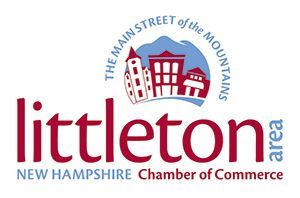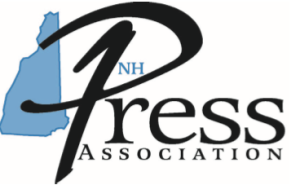
Through a routine mammogram conducted in 2008, Liz was diagnosed with hormone receptor-positive (HR+) breast cancer, a form of breast cancer linked to hormone levels, such as estrogen, rather than inherited mutations and genetic predisposition. The then 45-year-old wife and working mother of three young adult children underwent surgery and an extensive treatment plan that included radiation twice a day for ten days followed by balloon breast brachytherapy and four rounds of chemotherapy.
“For me, my whole thing was, we need to take care of this. I wasn’t really emotional,” Liz recalls, but her husband, Kevin Shelton, was. “For the people not going through it, it’s the hardest. They’re treading water, not knowing what to do with themselves, and thinking, ‘What do I say? What do I do?’”
Looking back, Liz says that she can only remember crying once, and that was when a representative from Dartmouth Hitchcock’s Cancer Center called to schedule her first appointment. “The first time they said the word ‘cancer.’ That’s when it became real. The biggest thing was that I wanted to know what I did wrong. That was the only question I asked. Did I do something wrong? Did I not take care of myself? When, in fact, it had nothing to do with my lifestyle and my life choices. It was the luck of the draw.”
New research from the National Breast Cancer Foundation, Inc. (NBCF), among others, indicates that “1 in 8 women in the United States will be diagnosed with breast cancer in her lifetime.” Given this startling statistic and her increased risk of breast cancer because a first-degree relative (mother, sister, or daughter) had been diagnosed, Liz’s younger sister, Erin, was vigilant about preventative care. A routine mammogram done a few years ago had detected calcification(s) in her left breast. This turned out to be a benign cyst; however, since certain patterns of calcification can sometimes be an early indicator of breast cancer, Erin paid special attention to the changes in her body.
During a routine self-exam in October of last year, Erin felt a 1.2-centimeter lump in her breast that turned out to be hormone-based breast cancer (different from but similar to Liz’s). Erin had a regularly scheduled physical a few days later so she purposely did not mention the lump to her primary care doctor. “I didn’t say anything to her to see if she felt it, and she did not. I said, ‘Did you, by any chance, feel that right there?’ She said, ‘I did not. I missed it.’”
Erin’s doctor scheduled a mammogram for later that week. “If she had not asked for the right side to have a special plate,” Erin says, “they would not have found [the lump] on a regular mammogram either. So, my cautionary tale is to be proactive. You know your body. Make sure you’re doing your self-checks. Thankfully, I caught it so quickly that it was very small.”
Erin underwent surgery, reconstructive surgery, and five weeks of radiation therapy. She is also on an estrogen suppressant that she will likely take for the next five years. “Because I already had time to process before I went to my primary care doctor and had the mammogram and the biopsy, I wasn’t upset. I wasn’t scared. I tend to have a pretty positive attitude toward health care. I felt like, ‘Okay, what is the next step? Let’s get this taken care of.’”
The physicians and other care providers at Cottage Hospital and Dartmouth Hitchcock’s Cancer Center, both Hanover, NH, and St. Johnsbury, VT, “jumped right in,” Erin says. They scheduled her appointments, presented her with comprehensive treatment plan options, and a smorgasbord of reading materials. Erin also sought genetic testing. “Unlike Liz, I wanted to check for my own son's sake because it could be a precursor to him, looking down the line at something like prostate cancer or if I had a granddaughter some day, but it was not genetically driven.”
Due in part to the 16-year gap between their diagnoses, Erin and Liz agree that, while their outcomes have been positive and nothing short of a blessing, they had drastically different experiences, from detection to coping strategies and treatment plans to side effects. Erin’s breast cancer was initially detected through a self-exam, while Liz’s was detected with a routine mammogram. The treatment options and side effects were also different. Liz suffered more intense symptoms, such as vomiting, while Erin’s side effects were minimal. Erin took a literary, methodical approach to processing her diagnosis, finding a sense of peace and camaraderie in talking with others, while Liz preferred a more private approach, relying on her sense of humor, friends, and immediate family.
Despite the disparities in their cancer stories, there is one common thread. The Gilbert sisters’ breast cancer journeys introduced them to a sisterhood founded on hope for survival and an unbreakable bond shared among countless women nationwide. “When you fall down, [our community] will pick you up,” Liz says, retelling the story of one customer who “popped her head in the door” at The Party Store after learning about Liz’s diagnosis and said, “‘I’m 10 years out.’ It’s them letting you know that you’ll be okay.”
Admittedly, the journey can be scary and overwhelming, Liz and Erin explain, but there is hope for survival. According to NBCF, when breast cancer is detected and treated at “its earliest, localized stages, the 5-year relative survival rate is 99%.”
When asked if she had any advice for others, Erin replies, “Don’t jump right into thinking the worst. I have to have chemo. I’m going to lose my hair. Every single person’s cancer story is different, and your diagnosis is what drives your treatment so never, ever put off having a check-up because you’re afraid. As the saying goes, ‘Better the devil you know than the devil you don’t.’”
Author’s Note: October is Breast Cancer Awareness Month, a time dedicated to empowering women by raising awareness and promoting early detection. This article honors all women - past, present, and future - who have battled or will battle breast cancer in their lifetime. For more information about breast cancer research, contact your primary care provider, or go to nationalbreastcancer.org or komen.org.
“I am not defined by my cancer. I am stronger than it.” -Author Unknown
Have a story?
Let's hear it!
(802) 757-2773
(603) 787-2444
news@thebridgeweekly.com





